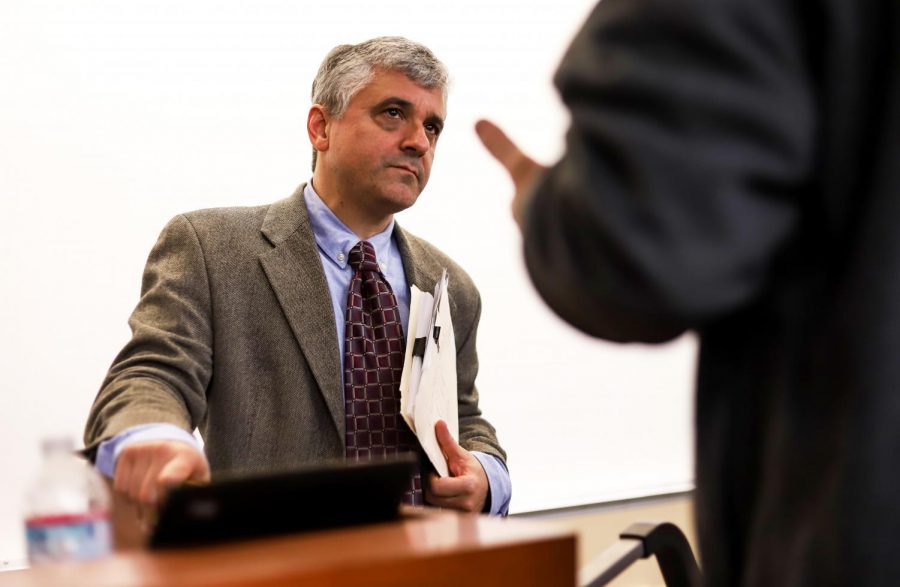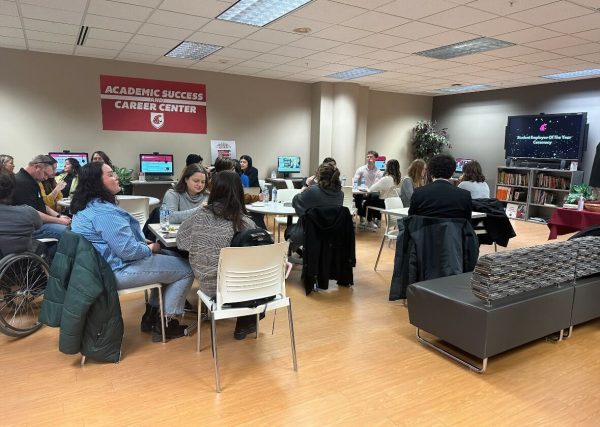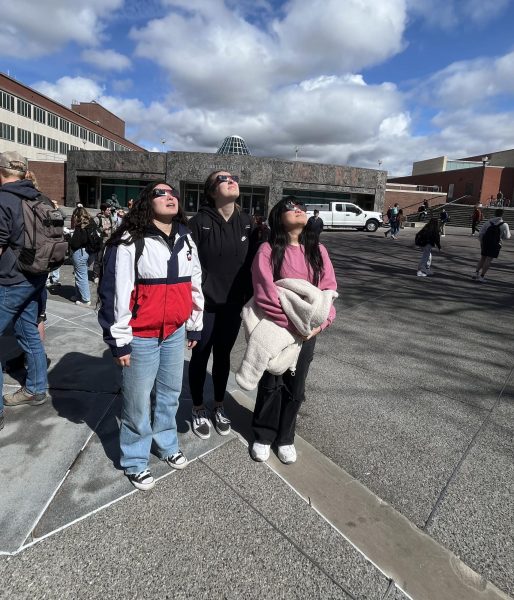Author speaks about democracy in America
Increasing polarization, move toward authoritarian tendencies are root problems, Levitsky says
Steven Levitsky, Harvard University government professor and “How Democracies Die” bestselling author, answers questions after a Foley Talk Tuesday evening at the Smith Center for Undergraduate Education.
October 9, 2019
The Foley Institute welcomed Steven Levitsky, co-author of “How Democracies Die” and Harvard University professor of government, to discuss authoritarianism and democracy in the U.S.
Levitsky said there are at least three reasons the U.S. might have entered uncharted territory when it comes to potential dangers in democracy.
He said one reason American democracy may be in danger is based on the levels of income inequality today in the U.S. Income inequality is higher than any other time since the great depression.
Another danger is that the U.S. has begun to transition into a state where a previously dominant ethnic group is losing its majority status, he said.
The final reason the U.S. might face potential dangers to democracy is that voters elected a president with visible authoritarian instincts, Levitsky said.
“None of that means American democracy is dead and none of that means American democracy is dying but we do think it’s cause for concern,” he said.
Democracies no longer die in the same way they used to, Levitsky said, which was at the hands of men with guns.
“Today democracies die in a much more subtle way,” he said, “they die in the hands, not of generals, but of elected leaders,”
He said today politicians use things such as elections, acts of parliament or congress to gain authority.
“What is so dangerous about this electoral road to autocracy is that it happens behind a pretty crowded façade of democracy,” Levitsky said.
He said as a result of this façade the world is not given the information it needs to make decisions until it’s too late. One of the keys to protecting democracy lies in keeping authoritarians from getting elected at all.
Levitsky used examples of the history of presidential term limits to show how the U.S. can sustain its democracy.
He said what will prevent a democracy such as America’s from descending into a destructive spiral of constitutional hardball is forbearance, which is a shared commitment of institutional restraint.
“Norms of mutual toleration and forbearance really only took hold in this country in the late nineteenth century,” he said.
Levitsky said polarization causes a lot of dysfunction in the U.S. as well.
“Many of our country’s democratic institutions are biased towards sparsely populated territories,” he said.
The electoral college and senate are both biased to highly populated territories as well as the supreme court, Levitsky said.
“The growing gap between who wins the most votes and who holds power could seriously erode the legitimacy of our constitution system,” he said.






















